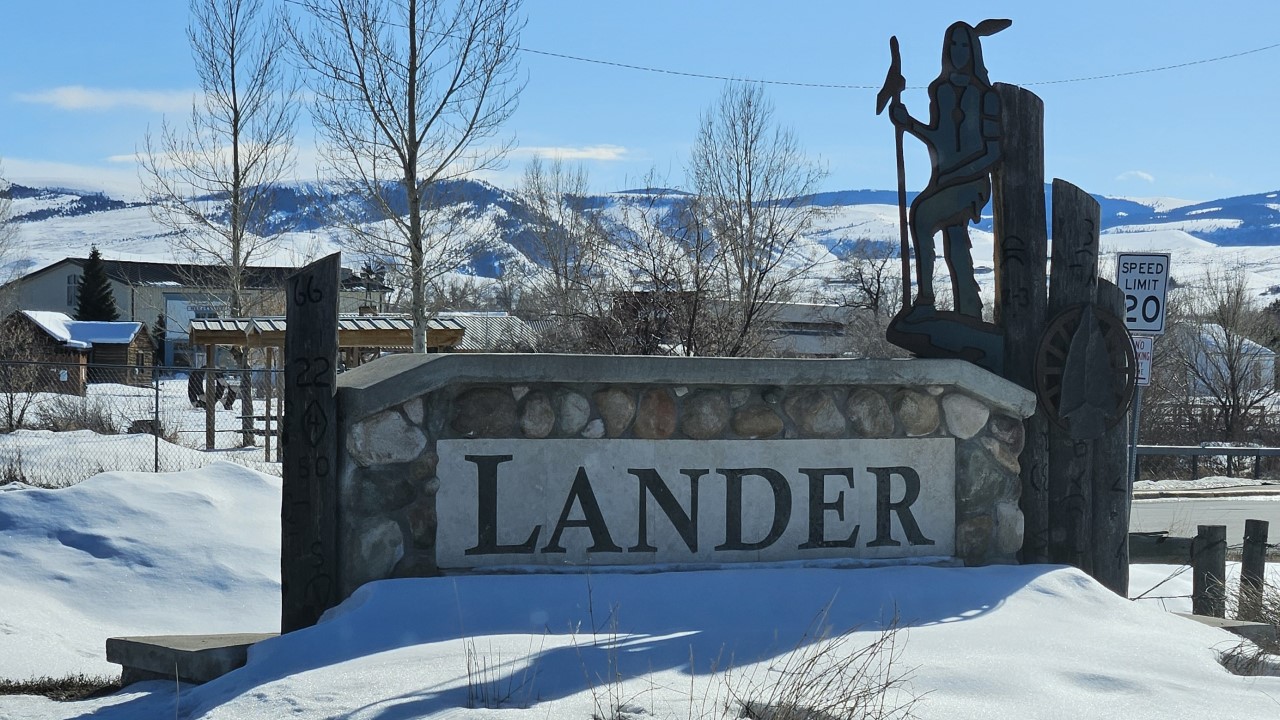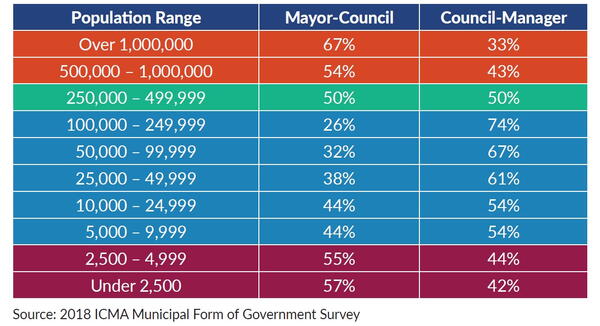
Earlier this year, I participated in a work session with the mayor and city council of Lander, Wyoming, to inform their discussions about potential changes to their current mayor-council form of government.
As ICMA continues to engage with small and rural communities to address their unique challenges, Lander provides a valuable case study to understand how the form of government might affect emerging rural communities on the further outskirts of larger municipalities. Lander (population: 7,587) is the county seat of Fremont County. It lies adjacent to Wind River Indian Reservation and is surrounded by large tracts of land used for hunting, fishing, ranching, and mining/drilling operations. Lander is also approximately 30 minutes from the Central Wyoming Regional Airport, approximately 2.5 hours west of Casper, and 5.5 hours north of Denver, Colorado.
Over the past 20 years, Lander and neighboring cities and towns have experienced growth in population and economic activity. Infrastructure investments from the state and federal levels have strengthened economic opportunities and created greater complexity in both service demands and fiscal management. This, in turn, raised the question for the mayor and city council about the potential need for professional government administration support if they are to achieve their long-term vision and goals for the city.
Figure 1 shows that communities under 5,000 in population tend to operate under mayor-council form of government. But notice that jurisdictions with a population between 5,000 and 250,000 tend to operate under council-manager form. This starts to shift back to a preference for mayor-council with an even split in cities with population between 250,000 and 500,000; and then the largest cities are more likely to operate under mayor-council once again.

So, why is there a tendency for the largest and smallest cities to operate under mayor-council, and why do we see the transition to council-manager more prominent everywhere else? While I have not seen any research to prove my theory, what I have learned from my experience is that large city mayors more commonly seek a longer political career with aspirations of higher state or federal office. And an executive mayor can better position themselves with name recognition and access to financial and political support necessary to compete for state or federal offices.
For smaller communities, those under 5,000 in population generally have far less complexity in programs and service and much smaller budgets. So, hiring a professional city manager is not always seen as necessary nor fiscally possible. However, when cities and towns start to grow above 5,000 in population, budgets tend to increase and demands and expectations for government grow along with it.
Over the past four years, those jurisdictions between 5,000 and 25,000 in population that have reached out to ICMA for insights on form of government have primarily come from mayor-council cities where the elected officials are looking for possible solutions to help make certain they can continue to manage the city effectively in the years ahead. Mayors become overextended when they have to run the city operations, meet with residents, and develop new ideas and solutions for local problems. What’s more, most of these jurisdictions have a mayor trying to do all this with a part-time city salary while they are simultaneously balancing the demands of a separate full-time job. And this isn’t even taking into account their family and personal lives.
This is the type of challenge facing the city of Lander as well. The mayor and city council stated that the proposition of a professional city manager under council-manager form or the addition of a city administrator under the mayor-council form are potentially promising solutions to building continuity and future stability for their government. They also identified the need to better codify the powers of the mayor, council, and staff since they currently do not have a city charter or resolution explicitly articulating those functions.
The greatest challenge that the council and mayor raised in regard to the potential to add a professional city manager is how to fund the position and attract the talent necessary to ensure long-term continuity. Certainly, compensation and quality of life are driving factors for recruiting any position in any industry, and city management is no different. Any community needs to promote their quality of life and make an appeal to potential managers who may be unfamiliar with their area. They may have internal staff with the necessary background and experience but still need a succession plan to make certain they continue to grow managerial talent from within. Each city may be unique, but ICMA would do well to continue to identify strategies to encourage and train city managers for service in these small and emerging rural communities as we seek to strengthen local governments.
As ICMA continues to support Lander in their efforts to identify the form of government that best suits their needs, we know that there are cities and towns across the globe in similar situations. While larger municipalities and counties tend to get greater attention and coverage on form of government advocacy, we must be mindful of the opportunities and needs of these growing communities. PM

JASON GRANT is the director of advocacy at ICMA (jgrant@icma.org).
New, Reduced Membership Dues
A new, reduced dues rate is available for CAOs/ACAOs, along with additional discounts for those in smaller communities, has been implemented. Learn more and be sure to join or renew today!

